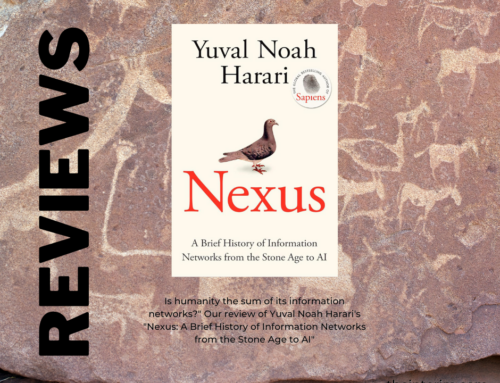 My first glimpse of Jordan Peterson was almost a decade ago, when he appeared on TVO’s current affairs show The Agenda with Steve Paikin alongside my friend, the writer Kathy Shaidle. She was on the show arrayed against a dismal group of evangelical atheists, including then-United Church minster Gretta Vosper – the God-botherer against the God-deniers, a hard hour of media labour that might have made turning down a job in Hamilton’s steel plants seem like an opportunity missed.
My first glimpse of Jordan Peterson was almost a decade ago, when he appeared on TVO’s current affairs show The Agenda with Steve Paikin alongside my friend, the writer Kathy Shaidle. She was on the show arrayed against a dismal group of evangelical atheists, including then-United Church minster Gretta Vosper – the God-botherer against the God-deniers, a hard hour of media labour that might have made turning down a job in Hamilton’s steel plants seem like an opportunity missed.
Neither Kathy nor I can recall just what position Peterson took on the subject, since the single highlight of the discussion we both recall was Paikin’s jaw-dropping disbelief that Kathy hadn’t been moved to bear witness to the historical milestone of Barack Obama’s recent inauguration speech. In the media class, then as now, skepticism about the new president’s eloquence or profundity was viewed as only slightly more baffling than a professed aversion to puppies, ice cream, and long summer weekends at the cottage.
Peterson fell off my radar until a couple of years ago, when his refusal to honour whatever fresh neologism might be remaking the once basic menu of gender pronouns rewarded him with infamy he couldn’t have anticipated. I remember watching him being interviewed at the time and thinking he didn’t look at all comfortable with this new and unwelcome distraction from his work as a university professor and clinical psychologist.
And then, for some reason I’d love to hear, he grew gradually but impressively into his new role, taking on his opponents and their belligerent rhetoric in an increasingly frequent series of articles, social media posts and lengthy online interviews. It was an evolution that reached its recent apex in a prime time TV interview in Britain with Channel 4 presenter Cathy Newman – an encounter that, depending on what you read, either featured Peterson doggedly dismantling Newman’s pointed misinterpretations, or revealing himself to be an intellectual bully at the head of an online army of thugs.
It was probably inevitable that this sudden notoriety would create a demand for a book-length statement of principles from Peterson, and he obliged earlier this year with 12 Rules For Life: An Antidote to Chaos. Deceptively packaged as a self-help tome, the book expands on a series of postings Peterson made on Quora, a crowdsourcing website that, instead of asking for money, invites its readers to contribute answers to questions posed by other readers.
The book’s structure is straightforward; after sketching in the origin of the dozen precepts, he states them at the outset of each chapter, explains them in varying degrees of complexity with examples from his practice as a clinical psychologist, anecdotes from his own life or – and this is proving to be most tantalizing – ruminations on quotes from history, philosophy, mythology or (most often of all) the Bible.
On the surface, Peterson’s edicts for a good life are self-evident: Stand straight; Obey the Golden Rule; Choose your friends wisely; Set yourself reasonable expectations; Raise your children well; Don’t be a hypocrite; Cherish meaning; Don’t lie; Listen before you speak; Choose your words carefully; Let children fail so they learn to succeed; Be kind to animals.
But lest you think that short paragraph should save anyone the price of the book, it has to be understood that we are at least a generation, perhaps several, from the point where these commonsensical statements were known, understood or accepted by any sane adult. We are, at the end of a century of phenomenal technological advances and cataclysmic history, sorely in need of a book-length exposition on phrases that you’d once expect to find on needlework samplers.
Early on and quite often, Peterson comes across with butt-clenching dread as the smartest-man-in-the-room, laying out the stories behind the facts, culled from his years of reading and research, with the force and volume of a firehose. He relies heavily on evolutionary biology to explain our hardwired need to create and find our place in hierarchies, with examples that distill our endlessly troubling social responses to bluff, authority, and even violence down to chemical and neurological mechanisms set in place way back in time with far less complex creatures (a scenario that’s easily satirized as “we are all lobsters”).
It’s been observed – and confirmed by Peterson – that the ideal audience for his book is young people in general and young men in particular. As a former young man, I can attest that being told by a wise older man, clearly on your side but unwilling to sugar coat the facts, that the bully and the big-man-on-campus are better armed than you are to jockey for status and fulfillment – the alpha lobsters, waving their claws around to appreciable effect – is very much less than comforting. Peterson’s ideal audience will have to endure the climb up a very steep hill of biological determinism to reach the far more hospitable plateau beyond.
I’m not saying Peterson is wrong. From the perspective of an older man, I’ve seen this lobster battle played out too many times to deny its plausibility. But I’d be remiss if I didn’t suggest that the ideologies that he decries, imagining that there is no biological determinism – not even the binary division of gender – or even a landscape governed by measurable standards or objective truth, is far more appealing to young people raised to believe in an ever-expanding entitlement of “rights” and a pursuit of “justice” that needs to triumph above history or biology.
It’s when Peterson tries to explain the philosophical and even theological roots of our cultural systems that things might be rewarding, for both young and older readers. He has a core group of texts that he relies upon, with particular emphasis on Dostoyevsky and Solzhenitsyn on the modern side, and while he will evoke ancient mythology – the gods of Egypt make several appearances, though even he can’t overcome the essential strangeness of their myths – he reaps more rewardingly from the Bible, especially in one passage where he analyzes the difference between the Old and New Testament God.
Peterson has made a project of revealing the moral theology that underlies our success as a civilization emerging from – and occasionally lapsing back into – barbarism. His eager and unironic evocation of God, Christ, the prophets, and apostles is refreshing and more than a bit surprising for a man who also admits the enormous influence Darwin has had on his intellectual growth.
His ability to entertain both, avidly, is rare and a “poker tell” that his fans have eagerly highlighted as a sign that Peterson might be the crusading secular convert that was once imagined happening with the late Christopher Hitchens. Hitchens retained his atheism to the end, but Peterson, who has been working on an ongoing series of lectures on the psychological significance of Biblical stories, is teasingly ambiguous about the status of his faith. A growing segment of his new fan base long to see him in a church pew or even a confessional one day (though the idea of a psychologist making confession is something only a master dramatist could imagine in detail).
While Peterson’s recall to faith is wrapped up in the fantasy of success these fans envisage for their new champion, the real success of Peterson and his 12 Rules remains to be seen. The last century unleashed a powerful entropy into western culture. The persuasive ability of one man, one book and a dozen plainly stated rules to overcome that collective flight from personal responsibility, into the chaos Peterson considers a threat to us – as people and as a society – will only play out in the choices of at least another generation.




